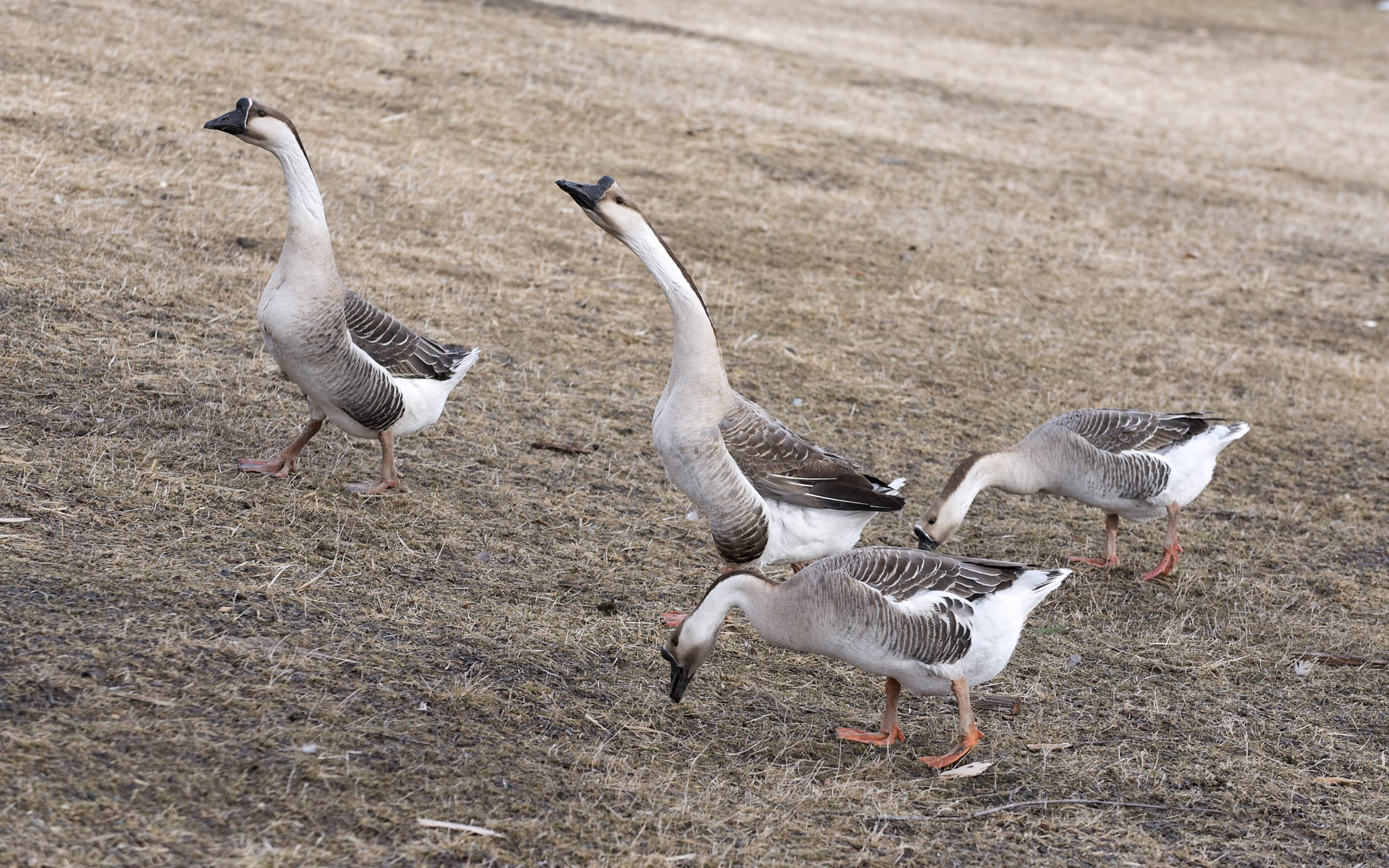Raising geese on your homestead: A primer
Interested in raising geese on your homestead? Primarily kept as pets, geese are intelligent, relatively self-sufficient and pretty hardy.

When most of us think of geese, we envision burly, black-capped Canadian geese, flying in a v-formation and honking all the way down. But not all geese fly south for the winter — some are content to stay put on your homestead all year.
Though they are slightly unconventional, geese have some advantages over other farm fowl. “They’re bigger, so they’re more immune from predators,” says John Metzer, owner of Metzer Farms in Gonzales, California. On top of that, Metzer adds, “Geese are the most intelligent of any poultry.”
They are also relatively self-sufficient. Unlike chickens who need coaxing a special conditions to effectively raise their young, geese can hatch and raise their own. “They’re very good parents,” Metzer says. “They are even adoptive parents,” he says. Pairs of geese, even those who aren’t broody, will often take care of orphaned goslings.
If you want some smart birds squawking around your homestead, here are the first things you need to know about raising geese.
What are geese good for?
Some geese are raised for meat — think a traditional Christmas goose — but most goose owners can’t bear to slaughter their birds. “The meat is rich, similar to duck meat,” Metzer says, “but more are raised as pets.”
Your pet geese will work for their keep, though. Geese are like living lawnmowers for your homestead. The big birds dine primarily on grass, so if your lawn is overgrown and out of control, a couple geese will help control the problem.
While most geese aren’t raised for eggs to eat like chickens or ducks (though goose eggs are much larger and richer in flavor), goose eggs are the pinnacle of the decorative arts. “Blowing” is a process by which the
What do you feed domestic geese?
Ideally, geese should be munching mostly on grass. To supplement their diets, any grain or prepared feed will work for domestic geese. They also enjoy leafy greens like cabbage, lettuce, and cauliflower leaves for a treat.
Can you raise geese with chickens?
Geese can be raised with other farm fowl. There are no specific or different requirements for the coops except the added space (between 8 and 10 square feet per goose should do). “Whenever you mix species, usually they can coexist as long as you give them enough room to get away,” Metzer explains.
Geese can be a little territorial, however, especially around the springtime when there are eggs to protect. Metzer says there are a variety of techniques to calm an aggressive goose, but the most common is to just catch the goose and hold it down in order to communicate dominance. “That seems to really do well to train a goose to be less aggressive,” he says. “But some people like that aggressiveness. They want the geese to protect their place.”
In general, though, geese are friendly birds brimming with personality. Metzer says that geese are more likely to cuddle and show affection than other birds, even nuzzling their necks around their owners’ arms or shoulders like a little hug.
